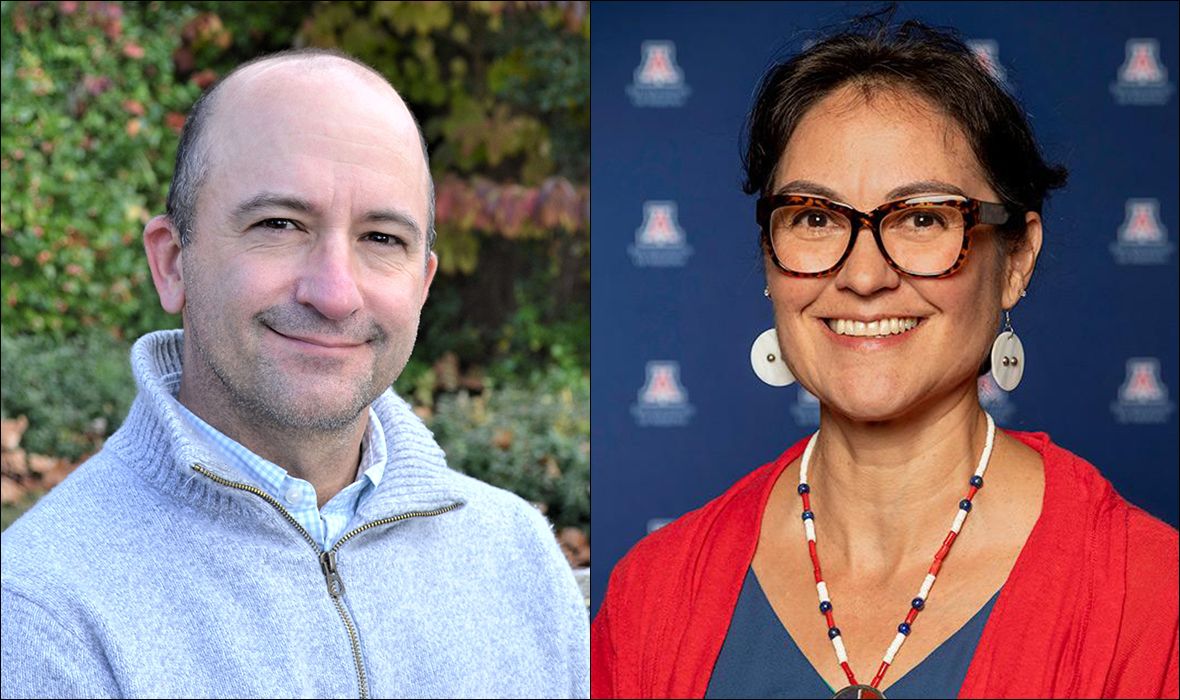Shelly C. Lowe (Navajo), Chair of the National Endowment for the Humanities, and Jason Mancini, Executive Director of Connecticut Humanities, will discuss the critical role the humanities play in tackling society’s toughest contemporary challenges. Chair Lowe will highlight new National Endowment for the Humanities initiatives that respond to some of the most pressing issues of our time: strengthening our democracy, advancing equity for all, and addressing our changing climate.
Turning to the Humanities in Challenging Times with Shelly Lowe and Jason Mancini
Sat, Jun 29, 2024 - 4:00pm Details Free Reservations
Shelly C. Lowe
Shelly C. Lowe is Chair of the National Endowment for the Humanities. Lowe is a citizen of the Navajo Nation and grew up on the Navajo Reservation in Ganado, Arizona. From 2015 to 2022 she served as a member of the National Council on the Humanities, the 26-member advisory body to NEH, an appointment she received from President Obama. Lowe’s career in higher education has included roles as Executive Director of the Harvard University Native American Program, Assistant Dean in the Yale College Dean’s Office, and Director of the Native American Cultural Center at Yale University. Prior to these positions, she spent six years as the Graduate Education Program Facilitator for the American Indian Studies Programs at the University of Arizona.
Lowe has served in a variety of leadership roles nationally, most recently as a member of the University of Arizona Alumni Association Governing Board and of the Challenge Leadership Group for the MIT Solve Indigenous Communities Fellowship. She has served on the board of the National Indian Education Association and as a trustee on the board for the National Museum of the American Indian.
Lowe holds a Bachelor of Arts in Sociology, a Master of Arts in American Indian Studies, and has completed doctoral coursework in Higher Education from the University of Arizona.
Jason Mancini
Dr. Jason Mancini joined CT Humanities as Executive Director in 2018. At CTH, he is focused on strengthening organizational partnerships, engaging diverse audiences, and anchoring Connecticut’s placemaking, public history, and integrative digital initiatives.
Jason is also co-founder of Akomawt Educational Initiative and the former Executive Director of the Mashantucket Pequot Museum and Research Center. During the past 30 years, he has worked with tribes and Indigenous peoples of southern New England, Alaska, Hawai’i, and New Zealand. He is an ally to these communities and works to build awareness of Indigenous rights and histories in public spaces. His academic interests include Indigenous social networks, maritime labor, and migration; Indigenous citizenship and political activism; and re-indigenizing public history and education.
Currently a Visiting Associate Professor of Slavery and Justice at Brown University’s Simmons Center, Jason served previously as Adjunct Professor of Anthropology at the University of Connecticut, Visiting Assistant Professor of Anthropology at Connecticut College, Visiting Assistant Professor of History at Brown University, and Social Sciences Instructor at Sea for Sea Education Association (SEA).
Jason is a Scientist-in-Residence at Mystic Aquarium, a member of Everyday Democracy’s Civic Health Advisory Committee, board member of UConn’s Asian and Asian American Studies Institute, advisor for UConn’s Tribal Educational Initiative, and served on the African American Curriculum Development Committee for the State Education Resource Center (SERC).
Jason holds a Ph.D. in anthropology from the University of Connecticut with expertise in the archaeology and ethnohistory of New England. His article, “in contempt and oblivion”: Censuses, Ethnogeography, and Hidden Indian Histories in Eighteenth-Century Southern New England, published in the Journal of Ethnohistory and his forthcoming projects, “Beyond Reservation: Indian Survivance in Southern New England,” and “The Narraganset Chief, or the Adventures of a Wanderer”: Recovering an Indigenous Autobiography, examine the nuanced and subverted histories of the Indigenous peoples of the American northeast.


